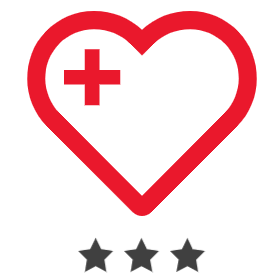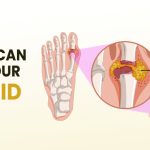Table of Contents
PREOPERATIVE ASSESSMENT Notes:
- Right Patient, Right Surgery, Right Side?
- “Time out” is done in the OR; X-References Pt info with Operation etc.
- Ask Pt what surgery?
- Mark the correct side.
- Informed Consent:
- General Risks:
- Anaesthetic Risks:
- Atelectasis (Lung Collapse)
- Pneumothorax (Lung Rupture)
- Pneumonia
- Aspiration
- Mouth Injury
- Sore Throat
- Awareness
- Coma
- Malignant Hyperthermia (Rare ➔ Rhabdomyolysis & Fever ➔Usually Fatal)
- Anaphylaxis (Anaesthetic Reaction)
- Cardiac Arrest
- Death
- Surgical Risks:
- Bleeding
- Transfusion (+/- Reaction)
- Wound (Pain, Scars)
- Infection
- DVT +/- PE
- Disability
- Death
- Nerve Palsy
- Anaesthetic Risks:
- Specific Risks:
- Brain Damage (Neurosurgery)
- Stroke (Carotid Endarterectomy)
- Hypothyroidism (Thyroidectomy)
- Hypoparathyroidism (Thyroidectomy)
- CBD Dissection (Cholecystectomy)
- Ileus (Abdominal Surgery)
- Adhesions (Abdominal Surgery)
- Final Words:
- Consent is NOT a contract; It can be revoked at any time.
- Risks are relative & depend on Pt Health & Procedure.
- Anaesthetic Mortality ≈1/200,000 healthy pts.
- Benefits should outweigh Risks
- General Risks:
Anaesthetic Risk Assessment:
- Cardiorespiratory Function
- Co-Morbidities?
- IHD
- Diabetes
- Asthma
- HTN
- Epilepsy
- Jaundice
- Pregnant
- Allergies
- Smoker
- Previous Anaesthesia + any complications?
- FamHx of Malignant Hyperthermia
Drug Assessment:
-
- Pt on Steroid Therapy?
- Pts on steroids have suppressed adrenals :. need extra cortisol to cope with the stress of surgery. Give Hydrocortisone 50-100mg IV with premeds, then TDS for <3days.
- Pt on Anticoagulants?
- Typically Aspirin is fine.
- Stop Warfarin >2-5days pre-op. (Emergency Reversal with Vitamin K +/- FFP.)
- Stop Heparin 6hrs pre-op. (Emergency Reversal with Protamine)
- (NB: When re-warfarinizing, DO NOT stop Heparin until INR is Therapeutic, as Warfarin is Pro-Thrombotic in the early stages)
- (NB: Avoid Epidural, Spinal & Regional Blocks)
- Pt on OCP/HRT?
- ↑Oestrogen = ↑ DVT Risk, :. Stop OCP 4wks Pre-Op (major/leg surgery); Resume 2wks Post-Op.
- Pt on Steroid Therapy?
Pre-Operative Checklist:
-
- Fast The Patient:
- NBM <2hr Pre-Op
- Clear Fluids >2 Pre-Op
- No Solids >6hrs Pre-Op.
- IV Cannula
- Cathetarise (if Necessary)
- Group & Hold/Crossmatch
- G&H for Moderate Surgery (Eg. Mastectomy, Cholecystectomy)
- X-Match for Major Surgery (Eg. Caesarean=2U, Gastrectomy=4U, AAA=6U)
- Usual Blood tests:
- FBC (Hb)
- U&E (if Diabetic/on Diuretics/Burns Pt/Renal Dx/Liver Dx/Ileus/on TPN)
- Specific Blood Tests:
- LFT (if Jaundiced/Malignancy/ETOH Hx)
- Amylase (if Acute Abdomen)
- Drug Levels (eg. Digoxin/Lithium)
- TFT (if Thyroid Hx)
- CXR (If Cardiac/Resp Hx, Possible Lung Mets, >65yrs)
- ECG (If >55yrs/IHD/HTN/Other CVD)
- Book any imaging
- Fast The Patient:
DVT Prophylaxis needed? (P580 oxford):
Graduated Compression Stockings (NOT FOR Vasculopaths!!!)
+ Heparin 5000Units SC 2hr Pre-Op (OR LMWH/Enoxaparin 20mg/d SC); then BD Post-Op until Walking
Prophylactic Antibiotics:
| Procedure | Likely Pathogen/s | Antibacterial Cover |
| General Surgery: Appendectomy (Non Perfd) Colorectal Surgery Biliary/Duodenal Surgery | Enteric G-Negs Enteric G-Negs + G-Pos Enterococcus, Anaerobes Enteric G-Negs + G-Pos Cocci | Cefalexin / Gentamicin Cefalexin + Metronidazole Cefalexin + Metronidazole |
| Orthopaedic Surgery | Staphs + Streps + G-Neg Bacilli + Anaerobes | Cefalexin / Gentamicin |
| Vascular Surgery | Staphs + G-Neg Bacilli + G-Pos Enterococcus | Cefalexin / Gentamicin / Augmentin |
| Urologic Surgery | G-Neg Bacilli + G-Pos Enterococcus | Cefalexin / Ciprofloxacin |
| Gynaecologic Surgery: C-Section Hysterectomy | Staphs + Strep + G-Pos Enterococcus Enteric G-Negs + Group B Strep + G-Pos Enterococcus | Cefalexin / Gentamicin Cefalexin / Gentamicin / Ampicillin |
| Egs: | Effective Antibiotics: | |
| G. Positives (“-cocci”) | Enterococcus Spp. Staphylococcus Spp. Streptococcus Spp. | Penicillins (Benz-Pen-G, Amoxicillin, Ampicillin, Fluclox) 1. (NB: Augmentin for β-lactamase resistant bacteria = Amoxil + Clavulonate) Cephalosporins (Ceftriaxione3, Cefipime4, Cepfalexin4) [Vancomycin (For resistant G-Pos/ if Penicillin Allergy)] |
| G. Negatives | E. Coli Neisseria Spp. Pseudomonas Haemophilus Spp. Klebsiella Spp. Enterobacter Spp. | Aminoglycosides (Gentamicin, Tobramycin, Streptomycin) 2. (NB: Used with Penicillins/Cephs for Synergy) Tetracyclines (Tetracycline, Doxycycline) Macrolides (Erythromycin, Azithromycin) Quinolones (Ciprofloxacin, Norfloxacin) Cephalosporins (Ceftriaxione3, Cefipime4, Cefalexin4) [Benz-Pen-G (For Neisseria Gono/Mening)] |
| Anaerobes | Bacteroides Spp. Clostridium Spp. | [Metronidazole (For Bacteroides)] [Vancomycin (For C.Diff)] |
| Atypicals | Mycoplasma Legionella | Tetracyclines (Tetracycline, Doxycycline) Macrolides (Erythromycin, Azithromycin) |
NB: Triple Therapy: –Ampicillin, Gentamicin, Metronidazole- give great ‘Broad Cover’. (Remember by AGM – Annual General Meeting…If you want to be around next year, take these 3)
Cardiovascular Pre-Op Assessment
- Assess the Pump (Heart):
- Power (Myocardium)
- Valves (Stenosis/Regurg)
- NB: Stenosis is worse than Regurg because they cap the CO under load/stress.
- Piping (Vessels)
- Control (Conduction)
- CVS Systems Review:
- Cardiac Failure:
- Dyspnoea
- PND
- Orthopnoea
- Peripheral Oedema/Ascites
- IHD:
- Angina (Stable/Unstable)
- Prev. MI
- FamHx of IHD
- Valve Disease:
- Hx of Rheumatic Fever
- Old Age
- PVD:
- Claudication
- Smoker?/Diabetic?
- Dizziness/Blackouts/Prev. TIA
- Conduction Deficits:
- Palpitations
- Arrhythmias
- Cardiac Failure:
- CVS Examination:
- Signs of Failure:
- Basal Crepitations (LVF)
- Peripheral Oedema/Ascites/Organomegaly (RVF)
- Signs of Structural Abnormality:
- Displaced Apex (Dextrocardia/Cardiomegaly)
- Parasternal Heave
- Murmurs/Thrills
- Previous Surgery
- Signs of PVD:
- Peripheral Pulses
- CRT
- Ulcers (Arterial/Venous)
- Signs of Arrhythmias:
- Irregular Pulse
- Rapid Pulse
- ECG
- Signs of Failure:
- Medications:
- Diuretics – because they ↓K+ & ↑Mg+
- Antihypertensives
- Antiarrhythmics
- Anticoagulants – esp. Dagabatran (Irreversible)
- Antibiotics
Thank You so Much. Happy Learning!!


